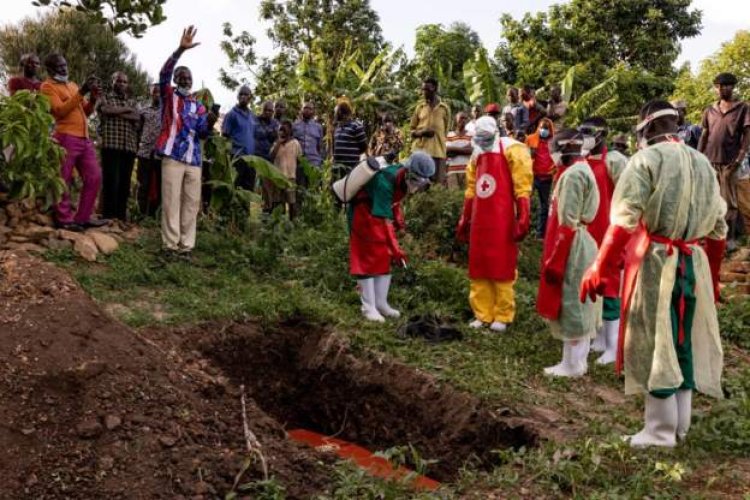Why traditional healers shouldn't deal with Ebola
Later in 2018, during a disease outbreak in the eastern Democratic Republic of the Congo, 'tradi-moderne' clinics, which offered a combination of herbal and pharmaceutical medicine, were rapidly recognized as infection hotspots.

In the newest effort to stop the spread of the disease, Uganda's President Yoweri stated in a speech to the nation on Wednesday night that "Traditional healers are barred from managing Ebola cases."
Traditional medicine has been practiced for many centuries throughout most of Africa, either through family lineage or apprenticeship.
They are a crucial site of vulnerability during epidemics of lethal infectious illnesses like Ebola.
The first confirmed Ebola case in Sierra Leone was reported in May 2014.
Investigations led to a "well-known and generally respected" traditional healer in Kenema, Eastern Province.
Patients had come to her from Guinea over the border. She fell ill quickly and passed away. Numerous people came to her funeral and burial.
According to the World Health Organization, local officials later connected that one burial to 365 additional Ebola deaths.
Later in 2018, during a disease outbreak in the eastern Democratic Republic of the Congo, 'trade-moderne' clinics, which offered a combination of herbal and pharmaceutical medicine, were rapidly recognized as infection hotspots.
They had healers working for them who had little formal education and no safety gear.
However, they fill a significant hole in medical treatment where there are few and far between hospitals.
Response teams trained and provided the healers with the tools they needed to properly identify and refer Ebola patients to specialized treatment facilities rather than banning them.
The healthcare system in Uganda is substantially more advanced. Health experts are optimistic that the current outbreak can be contained, as the nation has done with such outbreaks in the past.
However, specialists gathered at a regional ministerial conference this week warned them to exercise extra caution because every outbreak has its own set of difficulties.
19 deaths related to the current outbreak have been reported in Uganda, including one in the city of Kampala.

 Boakyewaa Lawrencia
Boakyewaa Lawrencia 


































